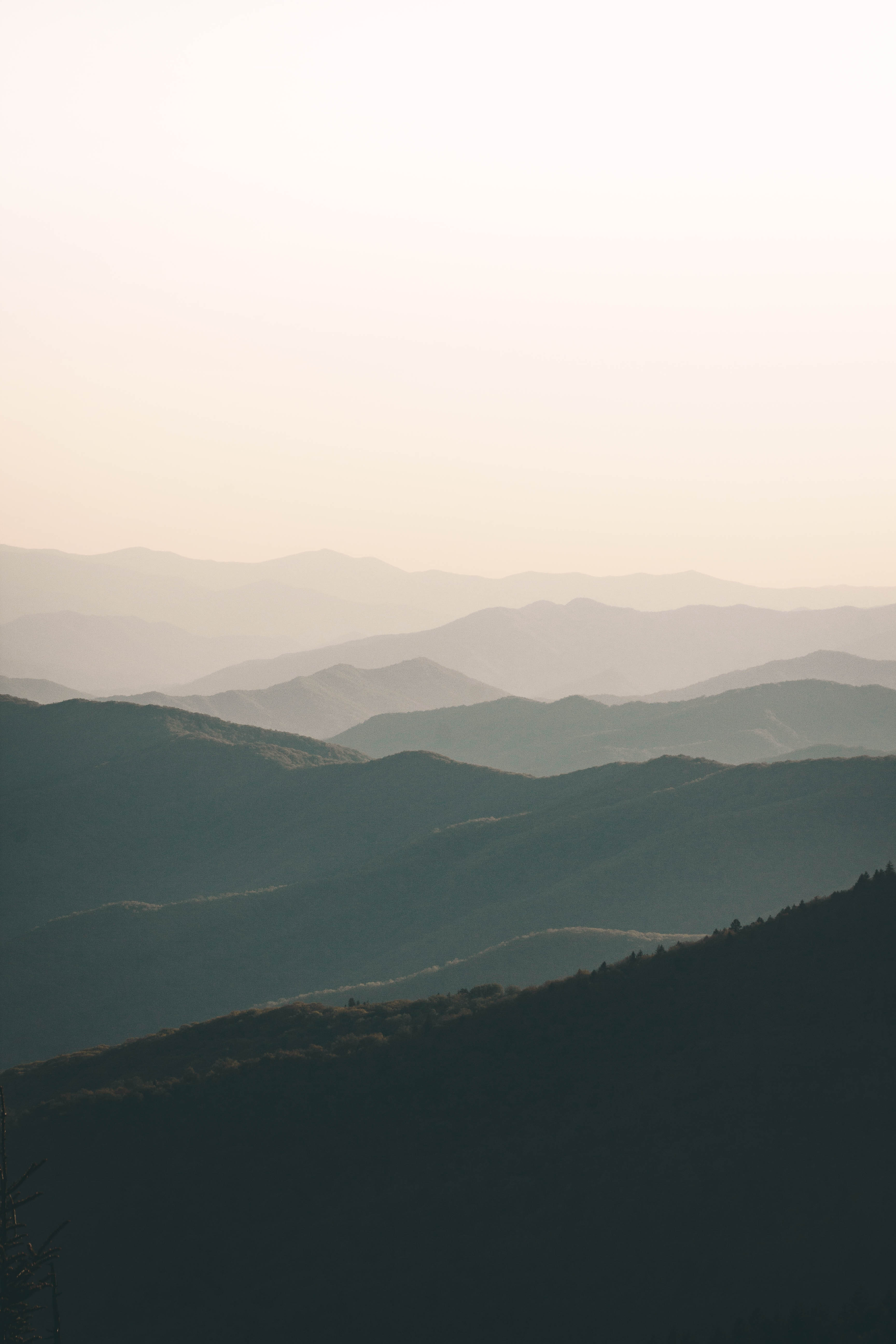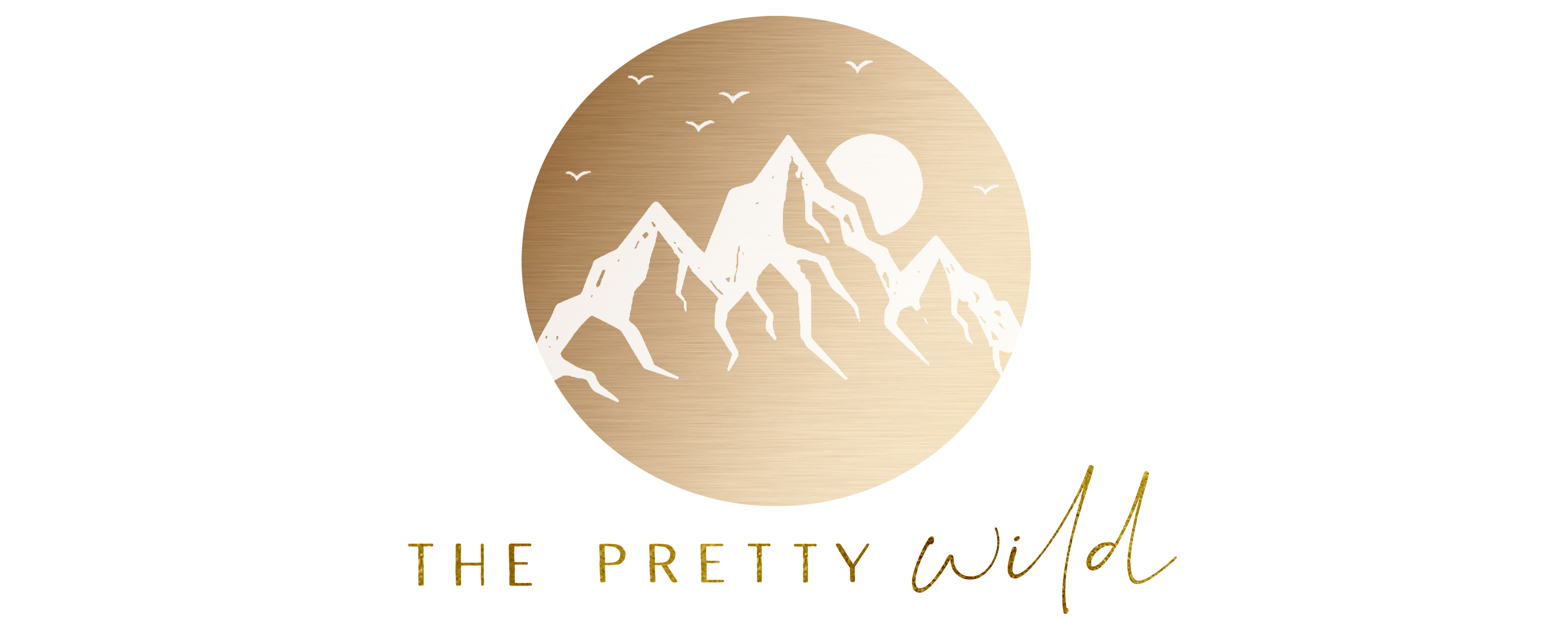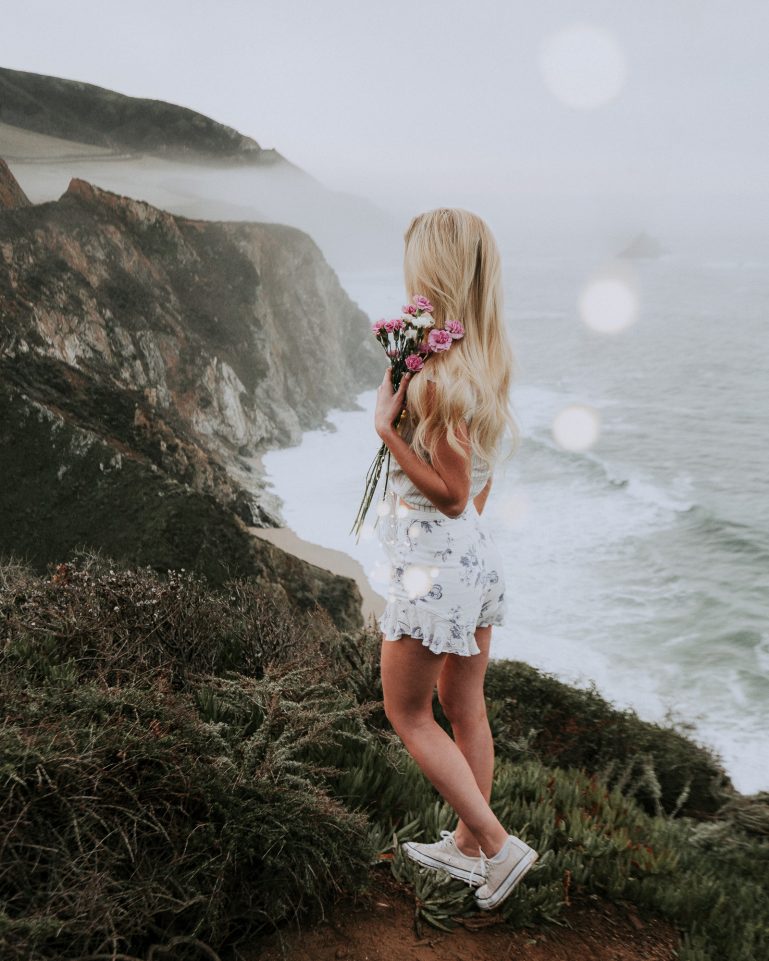Visiting Big Sur
Spectacular is an understatement when describing the 90 mile stretch of rugged central California coastline between Los Angeles and San Francisco known as Big Sur. Set amongst sweeping redwood forests and massive coastal bluffs, the scenery can only be described as magical. The wild stretch of land spanning Highway 1 seems as though it were made for a road trip (or just the perfect escape from cell reception). The area of Big Sur often finds itself at the mercy of Mother Nature, which makes road and trail closures common throughout the year. Consequently, it is necessary to check before planning a visit. Following a mudslide that cut off access to part of the region for several months, I decided to take advantage of the renewed access and spend a weekend disconnected from the world outside of Big Sur’s enigmatic boundaries.
Staying In Big Sur
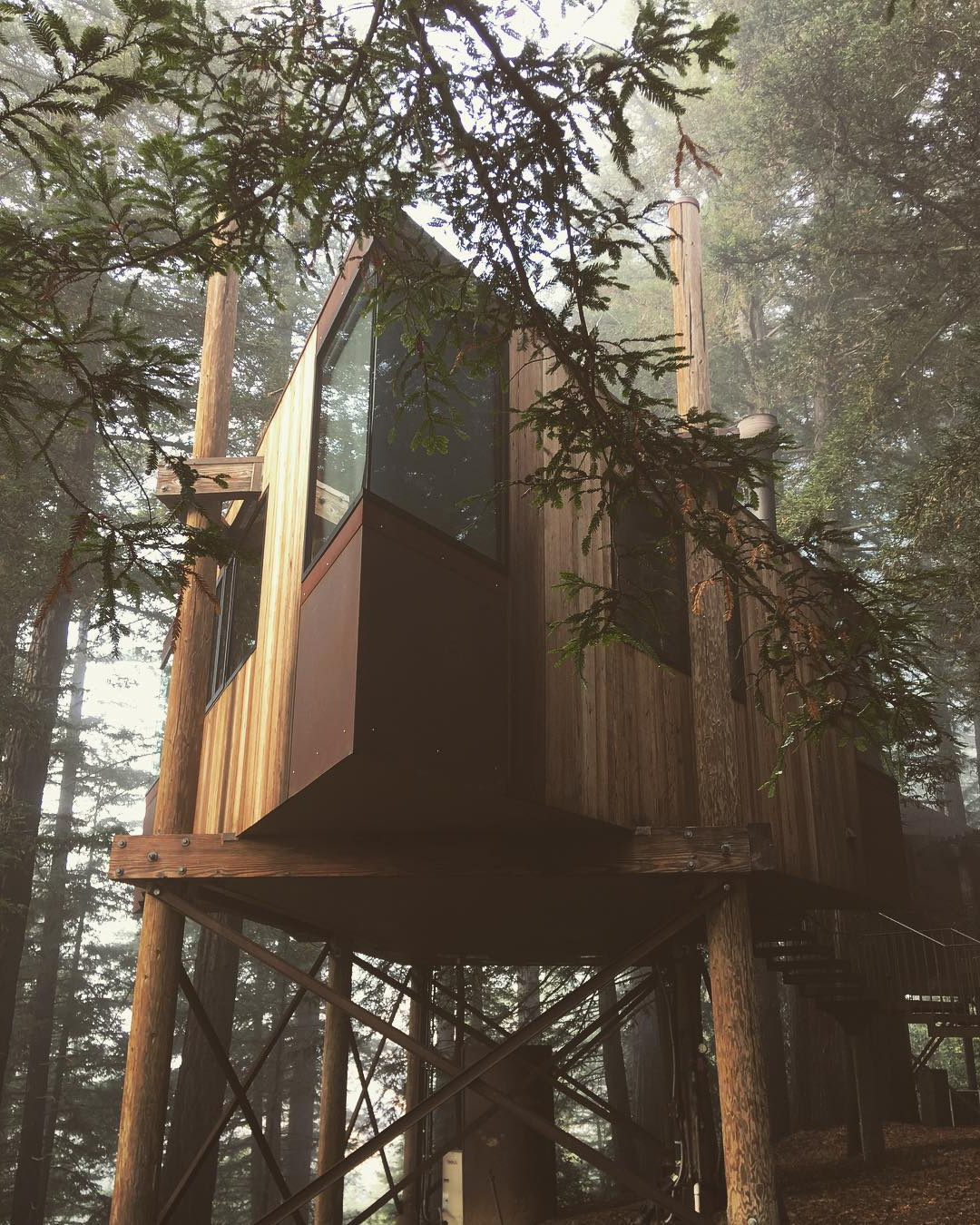
The heavy rains of the winter didn’t promise sunshine, but did give way to a blanket of coastal fog that encircled the canvas in eternal twilight. For my trip, this meant no crowds. While Big Sur’s natural setting is optimal for camping outdoors, or glamping at one of its many eco-resorts, the cooler temperatures had me opting to sleep indoors at The Post Ranch Inn. Arriving by gas guzzling Land Rover, the resort lent a more eco-friendly Lexus Hybrid to explore the long stretch of coast for the weekend.
Driving Through Big Sur
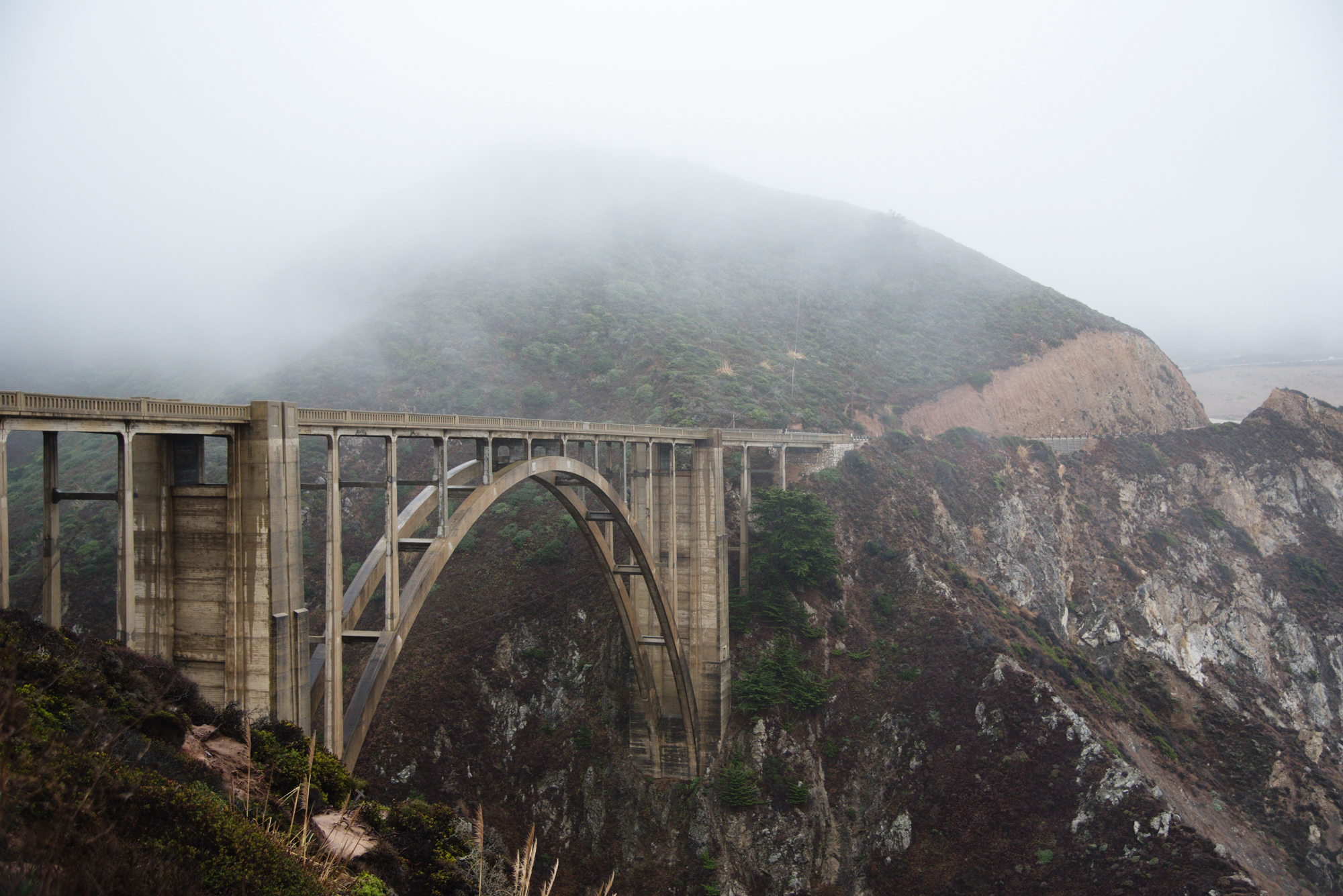
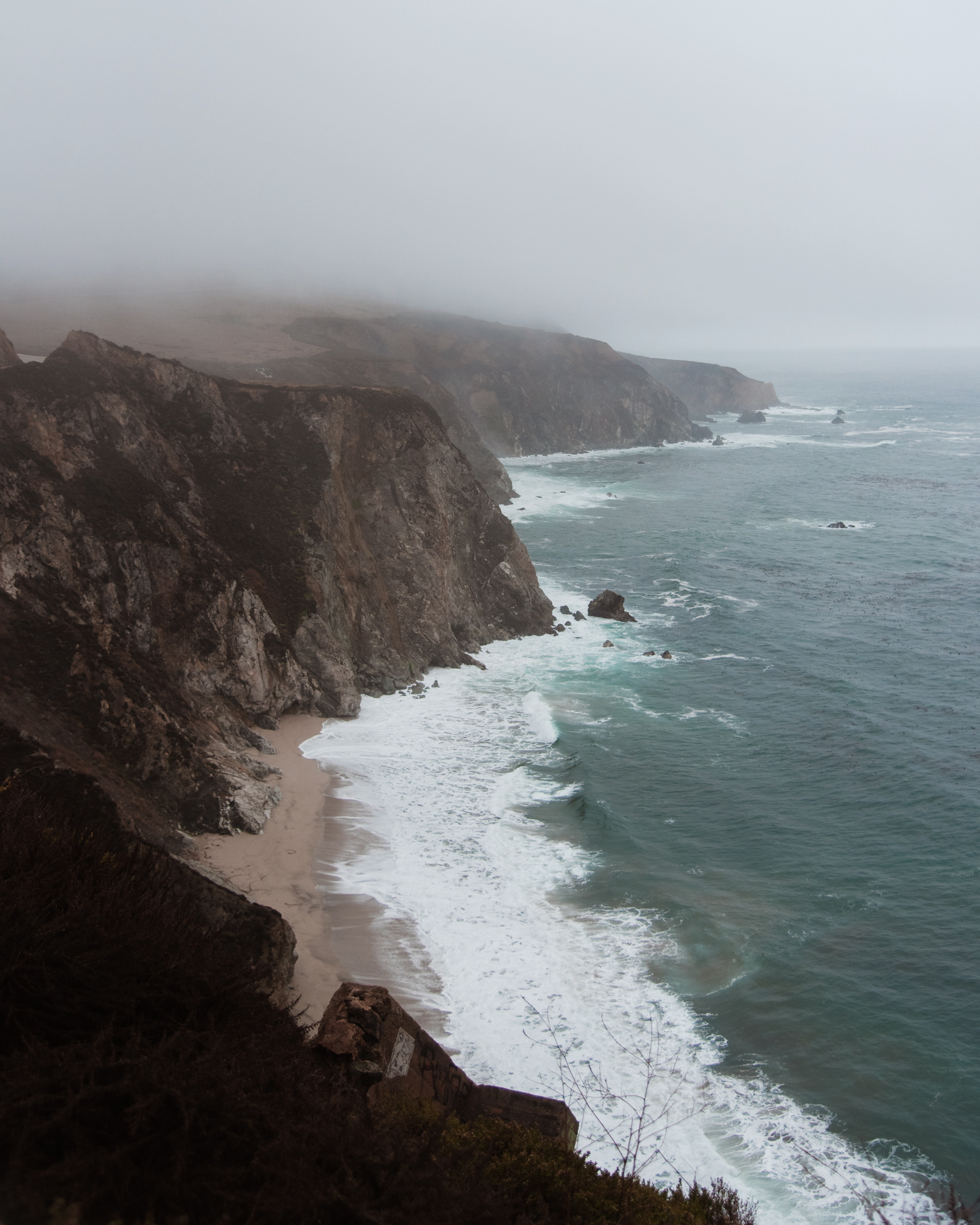
There are dozens of pullouts all along Highway 1 worthy of a photo-op. If coming from the North, an essential first stop is the Bixby Creek Bridge. The single span concrete bridge soars 260 feet above the canyon below, and is one of the most photographed landmarks in California. There are pullouts on either side of the bridge where you can park and get out to walk around, take photos, or just enjoy the scenery from both the East and West sides of the bridge. From here, a look out towards the ocean offers sweeping views of Big Sur’s iconic cliffs.
Los Padres National Forest – Pfeiffer Beach
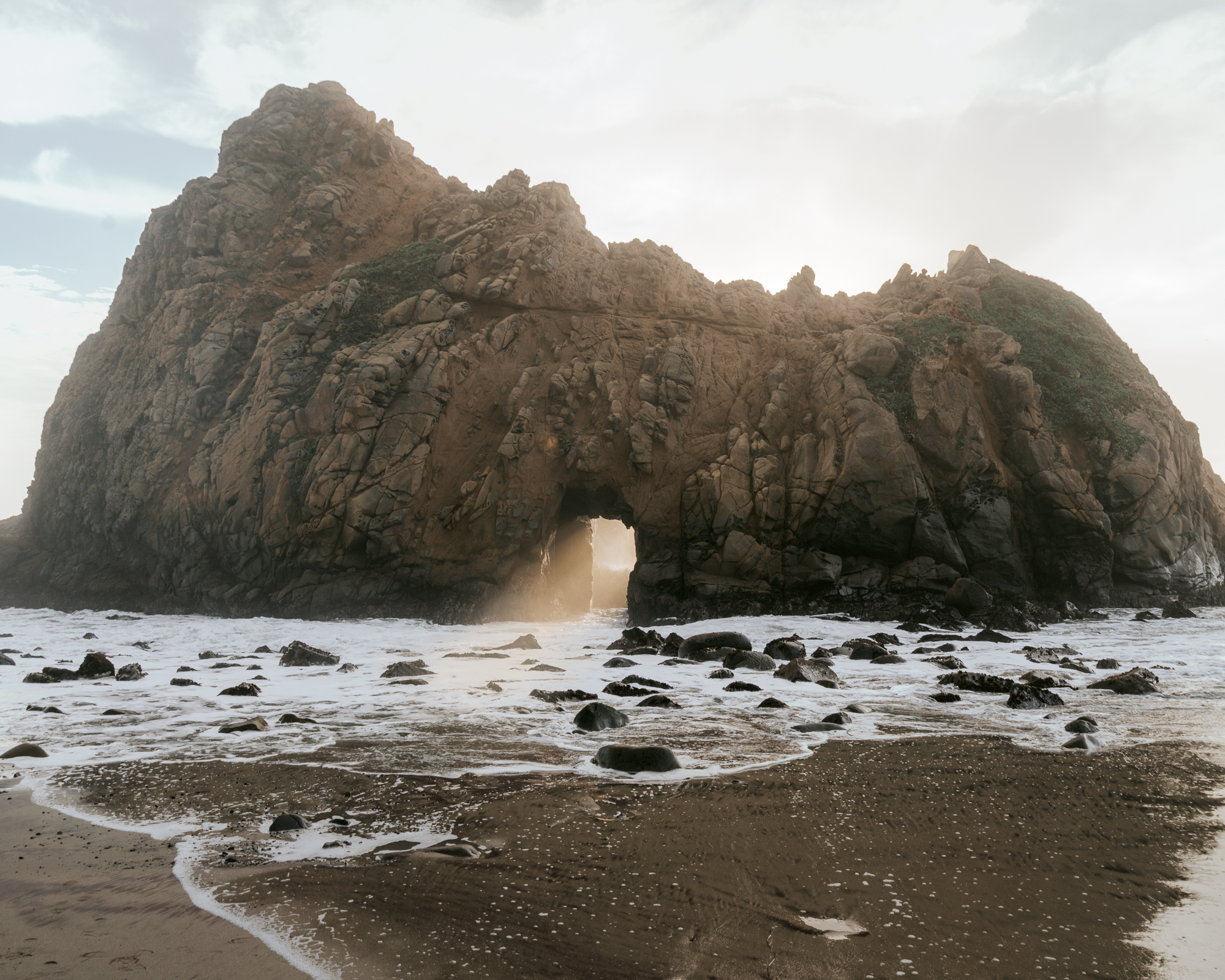
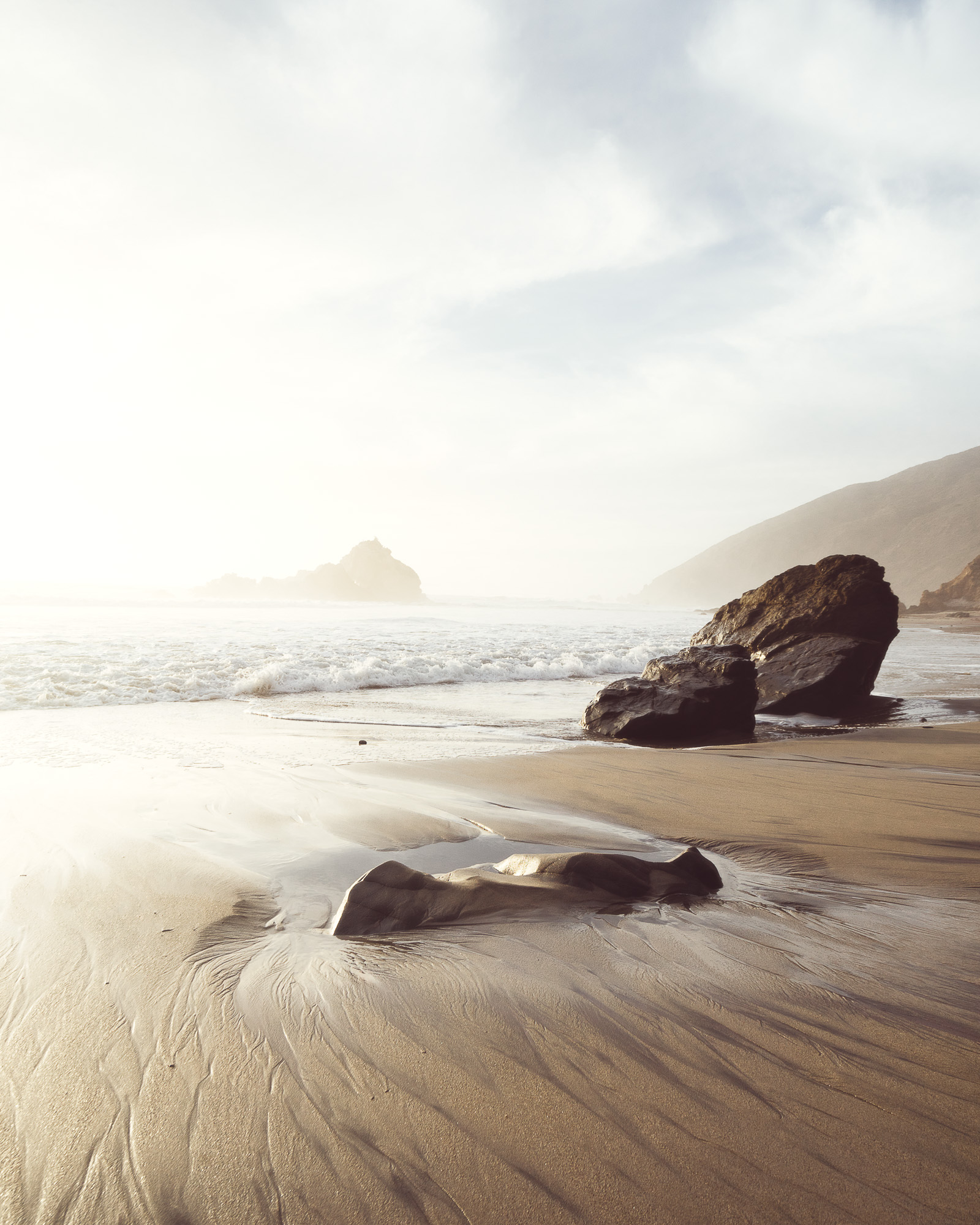
A half hour drive down the coast from Bixby Creek Bridge is the beautiful and secluded Pfeiffer Beach. Halfway hidden at the end of the unsigned and rocky Sycamore Canyon Road, it requires a $10 entry fee to get in. The beach is most magical at sunset, when the last golden rays of sun pass through the keyhole at the base of its magnificent rock archway. At certain times of the year the beach’s sand takes on a purple hue from manganese garnet rocks in the cliffs. Although I didn’t experience the colored sand on my visit, it gave me all the more reason to return.
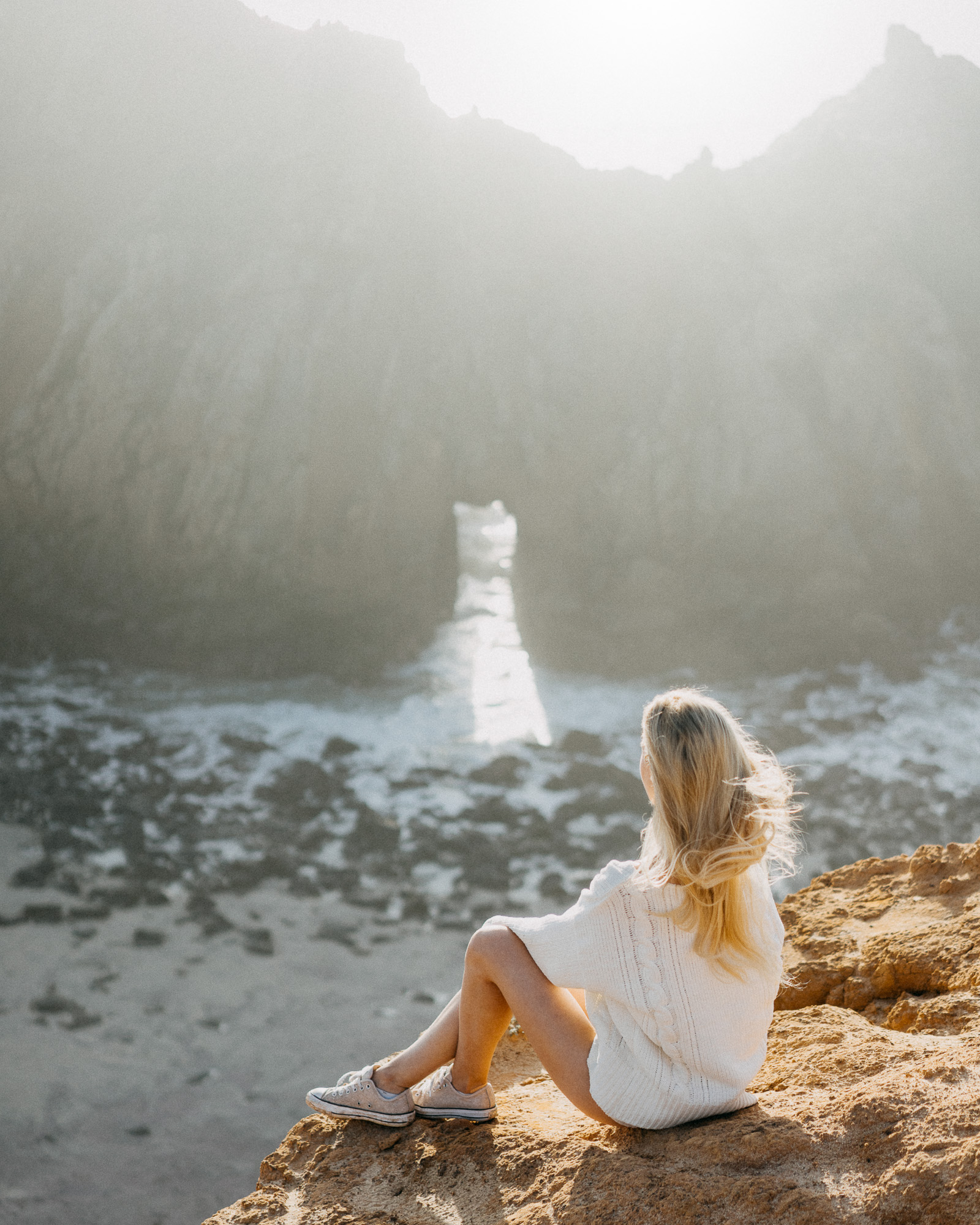
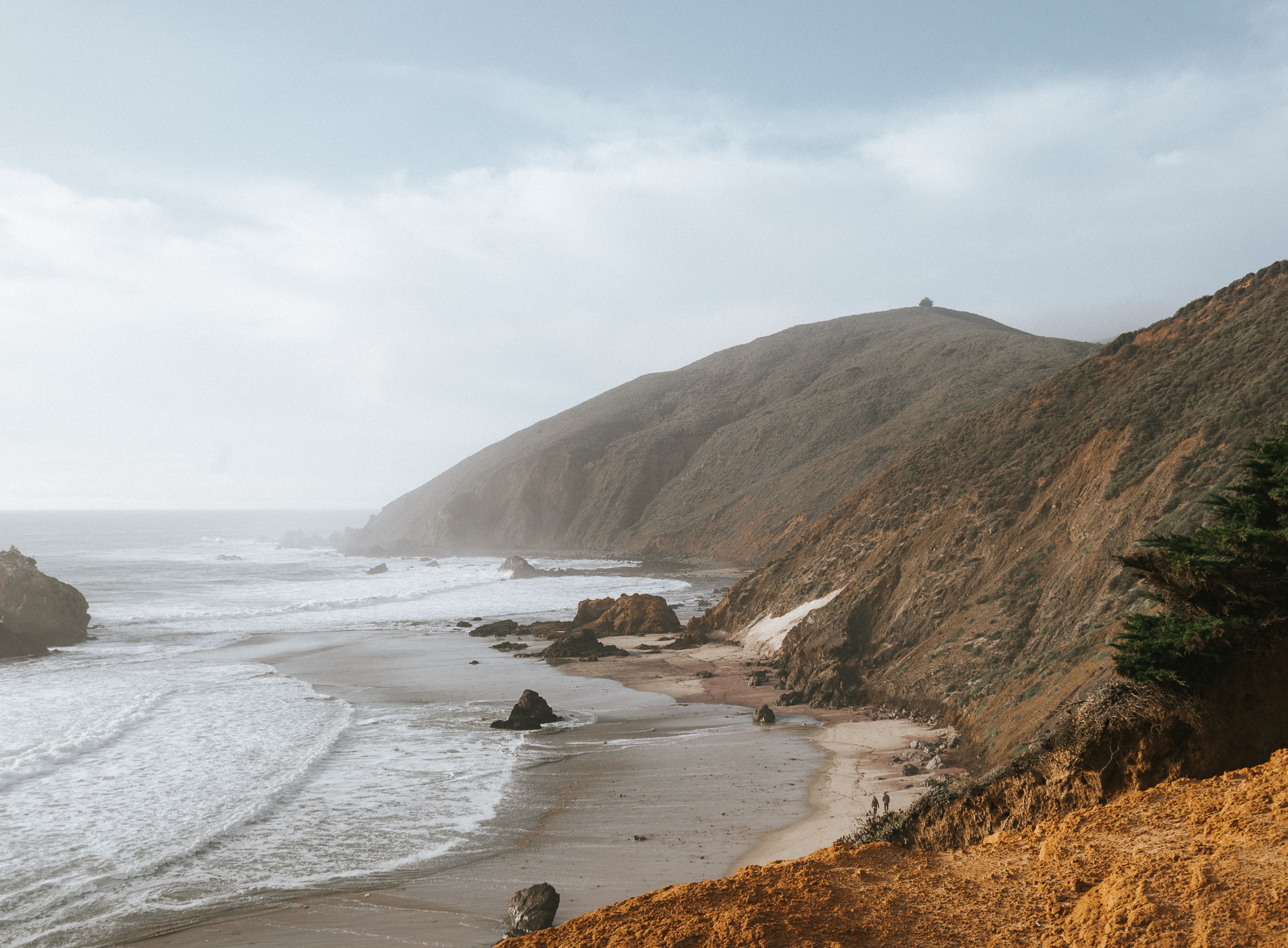
Seeking retreat from fellow beachgoers, I climbed to the top of a mound of hardened sand and rock stacked high above the shore. Once at the top, I was greeted with even more breathtaking views over the shoreline. I stayed up there the remainder of the afternoon; reading, taking in the scenery, enjoying a picnic, and watching as the sun set behind the archway.
Julia Pfeiffer Burns State Park – McWay Falls
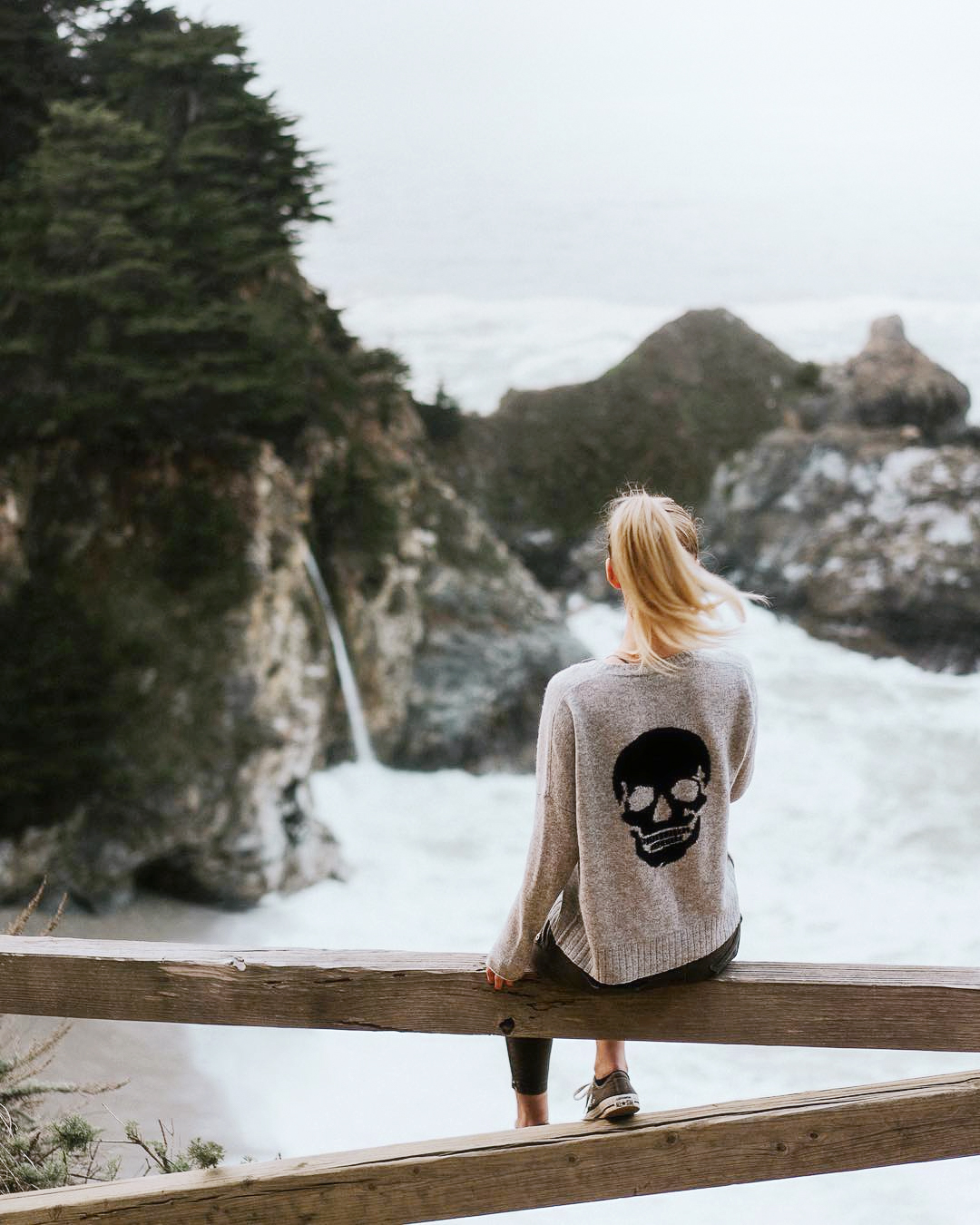
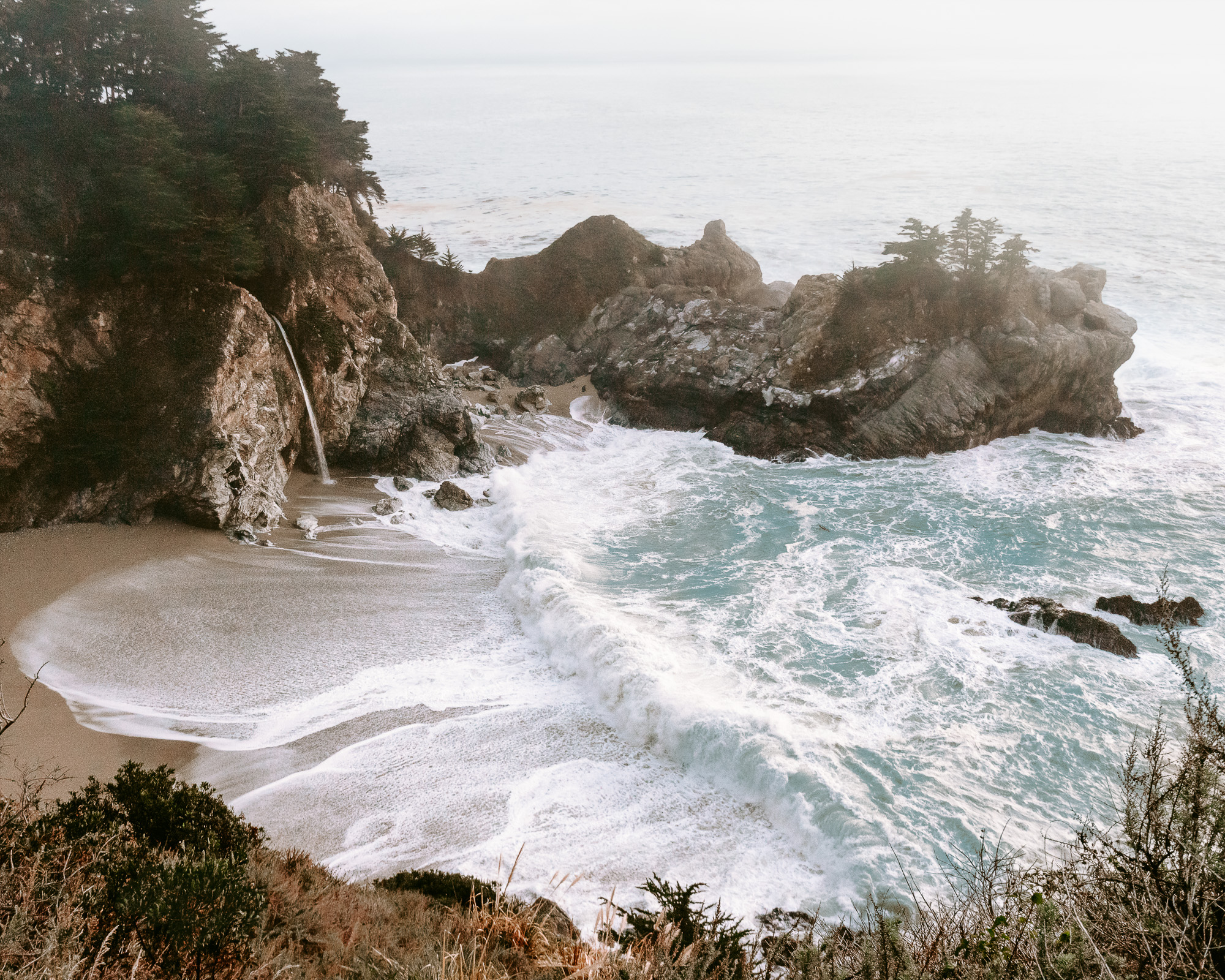
Another half hour south of Pfeiffer Beach is an 80 foot waterfall that flows directly onto the sandy cove below. Just off the road, the iconic McWay Falls is a captivating sight of bright teal water swept across a pristine and deserted beach. Access to the beach is restricted in order to preserve its integrity. The scene has long been the poster child for Big Sur, and it doesn’t disappoint. While easy to access, It is a great starting point for several other more strenuous hikes within Julia Pfeiffer Burns State Park, including Partington Cover trail, Canyon/Ewoldson trail, and Tan Bark trail.
Protecting Big Sur’s Natural Beauty
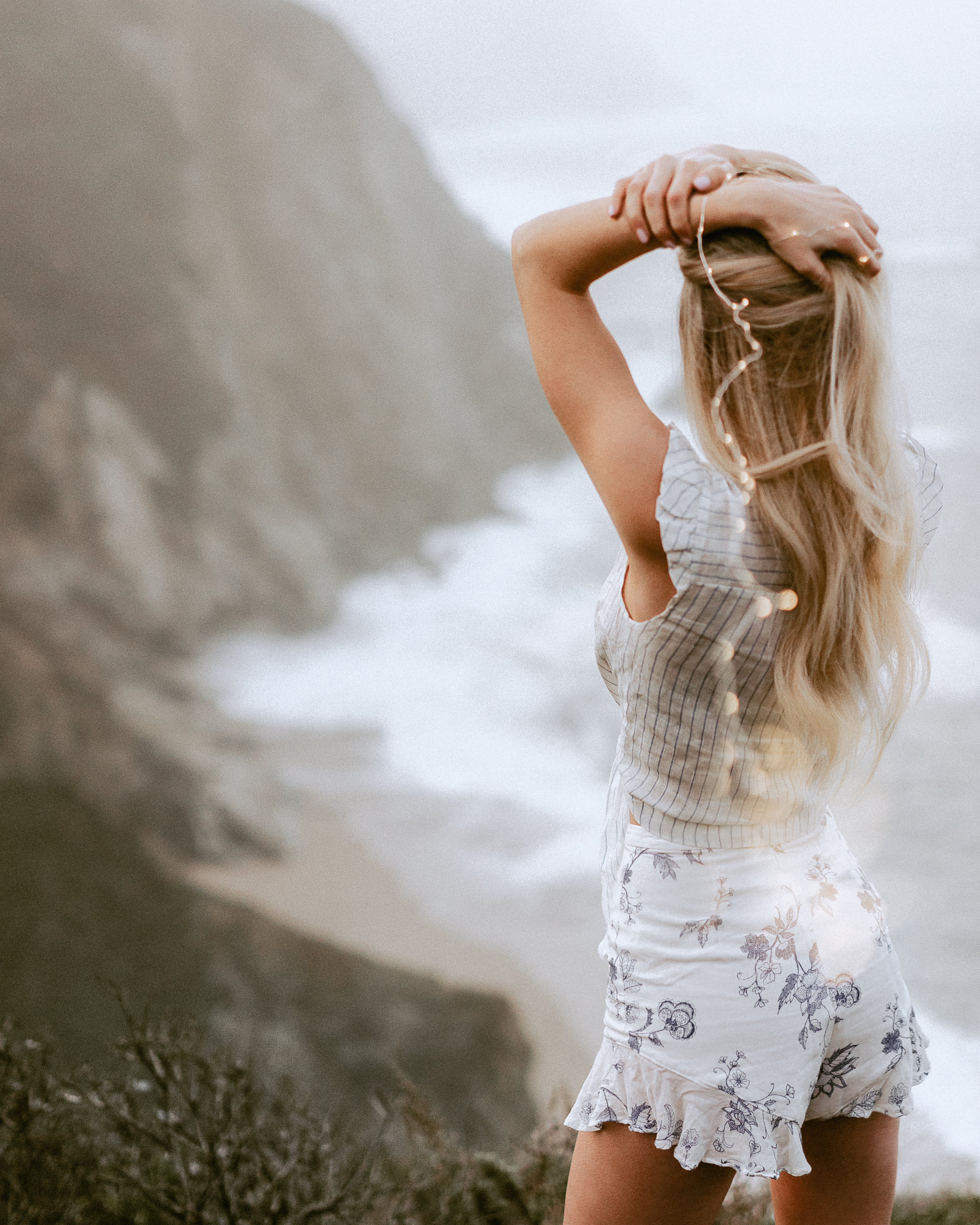
Big Sur is a highly prized and protected conservation area for local flora and wildlife in California. Although rugged, it is quite fragile and thus vulnerable to the ramifications of its growing popularity. To ensure its beauty for many generations to come, it is important to enjoy it responsibly: stick to designated trails, respect wildlife, and use leave no trace principles when visiting.
Take only memories, leave only footprints.
